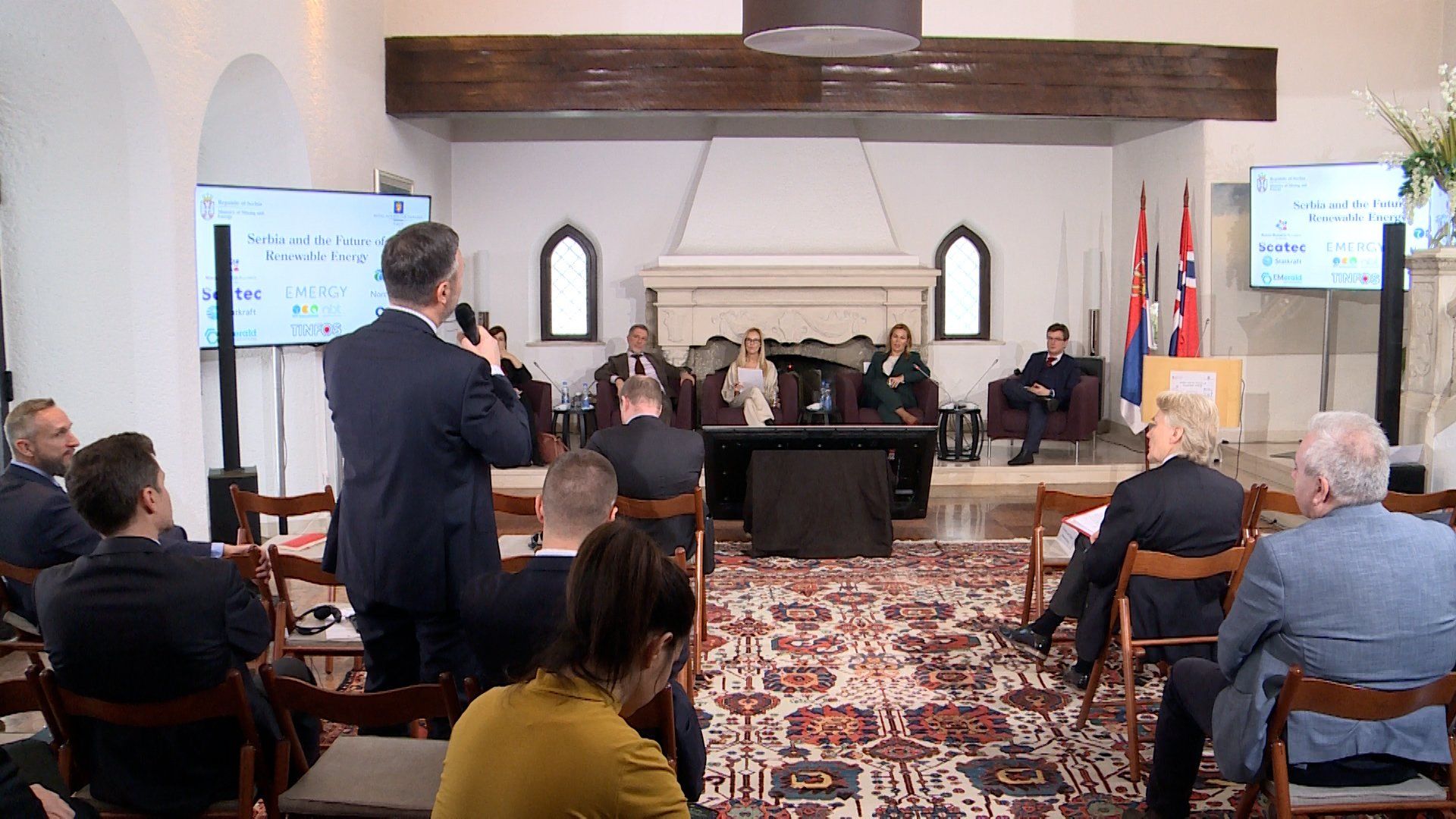Serbia and the Future of Renewable Energy

On the day when negotiations on Cluster 4 with the European Union were opened, a conference "Serbia and the Future of Renewable Energy" was held at the Norwegian Residence in Belgrade, where participants had the opportunity to discuss renewable energy sources, and where Serbia wants to be in the future when it is comes to the optimal energy mix.
As part of this conference, a panel discussion entitled "Implementation and financing of renewable energy sources" was held, moderated by the executive director of the Nordic Business Alliance, Iva Petrović.
In the opening, Petrović expressed satisfaction with the fact that Serbia is committed to the green energy transition and emphasized that the cooperation of key stakeholders from different sectors is crucial for the transition to renewable energy sources to be successful.
One of the participants in the panel was Nicola Bertolini, Head of Development Cooperation, Delegation of EU to Serbia, who expressed the readiness of the European Commission to invest in the green transition of Serbia and the region. When it comes to the investment framework for the Western Balkans, Bertolini pointed out that Norway is the largest donor of all member
countries and called on the companies of this country to consider investing in RES projects in Serbia. According to him, the Investment Framework for the Western Balkans includes financing the project in the amount of 20 percent of the total costs, as well as covering the costs of studies necessary for the development of the project.
"It is important to learn how projects develop. Our role is to push for the preparation of good projects," he added.
Neda Lazendić, director of WindVision Serbia, pointed out that the right time to invest in Serbia was guided by her own success story that has lasted for more than a decade.
"We started 12 years ago when Serbia did not have laws in the field of RES . Therefore, it was first necessary to make some kind of attraction for investors, so that they could come and invest, and their investment would be stable. "Now we have a new law which introduces feed-in tariffs and auctions, so we are now ready for new investments," said Lazendic and expressed confidence that Serbia will become a leader in the region when it comes to the energy sector.
When it comes to financing RES projects, Milica Sredanović, Chief Banker for Infrastructure Projects in the Western Balkans, International Financial Corporation (IFC) and Pavle Milekić from the European Bank for Reconstruction and Development (EBRD) introduced the participants to the preconditions for project financing and current developments. Sredanović stated that IFC worked on the first set of regulations for auctions and financed half of the total 500 MW quotas for feed-in tariffs.
"Everything is happening faster now, we used to have very robust support for the private sector, and now we have more and more competitive schemes and we hope to have more corporate PPAs or projects that are partially on the market in the future," said Sredanović.
Milekic agreed with the other participants in the panel that now is the right time to invest in Serbia, and that the first auctions bring us a very exciting and significant period.
As he stated, the EBRD is one of the largest investors in Serbia and the region, which cooperates with both the private and the state sector, such as EPS. He emphasized that it is necessary to equally invest in the entire infrastructure for renewable energy sources, which includes the construction of power plants and electricity distribution networks.
Asked why the implementation of renewable energy projects is still relatively weak, despite the drastic reduction in technology cost for RES, Milekic explains that not everything is included in the price, but that project financing depends on the country's legislation, the cost of the project and other elements. He called on all companies that are considering investing in RES projects in Serbia, to contact the EBRD, which will be ready to welcome them with advice and proposals for long-term cooperation.
The moderator of the panel, Iva Petrović, pointed out that it is important to hear the opinions of various actors that are key to financing and implementing renewable energy projects, and that it is certain that the opportunities for Serbia in this sector are great.
"With all the investments, which will amount to 17 billion euros in the next 20 years, I hope that we will be able to improve our country's energy portfolio and increase the share of RES in the energy mix," concluded Petrovic.



